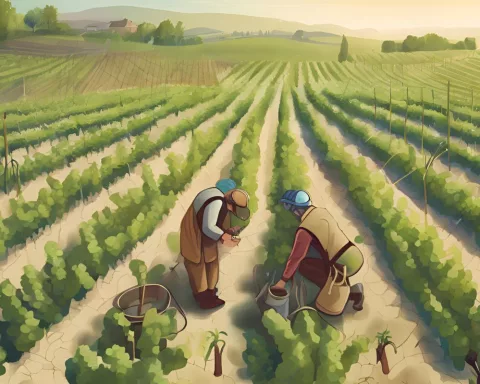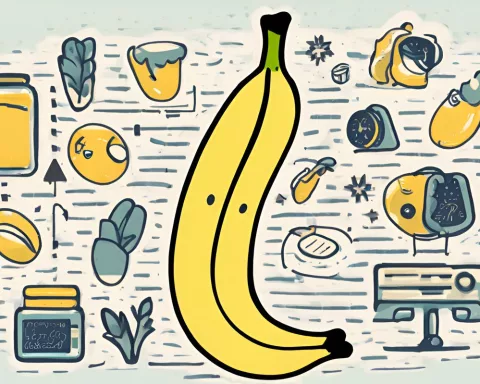South Africa’s Child Support Grant (CSG) has positively impacted 13 million children, providing R510 per child monthly, making it the program with the most significant impact on poverty and the most extensive coverage of the impoverished. The CSG has also contributed to fostering positive academic outcomes, with studies showing that children who receive the grant are more likely to stay in school. The release of a comprehensive report analyzing the CSG program’s effectiveness comes at a critical moment, offering valuable information to policymakers and promoting collaboration among diverse stakeholders working towards the shared objective of eliminating poverty and enhancing children’s lives.
Examining the Child Support Grant’s Impact on Poverty
In a determined attempt to tackle child poverty, South Africa’s Minister of Social Development, Ms Lindiwe Zulu, introduced the Child Poverty and The Child Support Grant (CSG) Review Report in Johannesburg, Gauteng. This crucial step followed the recognition of the pressing need to reassess policy surrounding the CSG in 2020. Consequently, in 2021, the department tasked the Children’s Institute at the University of Cape Town with conducting a thorough evaluation of child poverty and the CSG’s significance.
This comprehensive review’s objective was to investigate child poverty in the nation and record the policy process in creating and expanding the CSG. Additionally, it highlights the CSG’s effect on alleviating child poverty. The CSG has effectively reached a substantial number of underprivileged children with relative simplicity and holds the most pro-poor targeting achievement of all current social grants.
Currently, the Child Support Grant has positively impacted 13 million children, providing R510 per child monthly. This remarkable accomplishment is evident in the R77 billion CSG budget allocation for the 2022/23 fiscal year. South Africa’s social assistance program has received worldwide praise as a strategic blueprint for the principal poverty reduction initiative. In 2022, the World Bank report on Inequality in Southern Africa recognized South Africa’s Child Support Grant as the program with the most significant impact on poverty and the most extensive coverage of the impoverished.
Enhancing Education and Celebrating Social Development Month
The CSG has not only supported the government’s pro-poor poverty reduction policies but has also significantly contributed to fostering positive academic outcomes. Studies have shown that children who receive the CSG are more inclined to stay in school, ensuring a promising future for these recipients.
The report’s introduction aligns with Social Development Month, observed every October, with this year’s theme being “working together to eradicate poverty and other social ills.” The month primarily highlights the work carried out by the Department of Social Development and its entities, such as the South African Social Security Agency (Sassa) and the National Development Agency (NDA).
Media representatives were encouraged to attend and report on the launch, held both virtually at www.dsdtv.org.za and in-person at The Nelson Mandela Foundation in Johannesburg.
Collaborating for the Future and Addressing Remaining Challenges
The necessity of confronting child poverty is crucial, as it has extensive consequences for future generations. The release of this exhaustive report comes at a critical moment, offering valuable information on the CSG’s effectiveness in South Africa. By combining these findings with the government’s unwavering dedication to reducing poverty, there is cause for optimism regarding the CSG program’s potential impact on the lives of millions of children in the nation. The report serves as an essential resource for policymakers, enabling them to make informed choices and promote collaboration among diverse stakeholders working towards the shared objective of eliminating poverty and enhancing children’s lives.
As South Africa continues to work towards a more equitable society, it is vital not to overlook the numerous remaining challenges. While the introduction of the Child Poverty and The Child Support Grant Review Report signifies an important milestone in combating child poverty, it also emphasizes the need for ongoing evaluation, monitoring, and enhancement of the CSG and other social assistance programs. By doing so, the country can ensure that its efforts remain effective, targeted, and ultimately triumphant in uplifting its most vulnerable citizens.
1. What is South Africa’s Child Support Grant (CSG)?
South Africa’s Child Support Grant (CSG) is a social assistance program that provides R510 per child monthly to underprivileged children in the country.
2. How many children has the CSG positively impacted?
The CSG has positively impacted 13 million children in South Africa.
3. Has the CSG contributed to academic outcomes?
Yes, studies have shown that children who receive the CSG are more likely to stay in school, leading to better academic outcomes.
4. What was the objective of the comprehensive review of child poverty and the CSG’s significance?
The objective of the comprehensive review was to investigate child poverty in the nation, record the policy process in creating and expanding the CSG, and highlight the CSG’s effect on alleviating child poverty.
5. What is Social Development Month?
Social Development Month is observed every October in South Africa and highlights the work carried out by the Department of Social Development and its entities, such as the South African Social Security Agency (Sassa) and the National Development Agency (NDA).
6. How can policymakers use the report on the CSG’s effectiveness?
The report serves as an essential resource for policymakers, enabling them to make informed choices and promote collaboration among diverse stakeholders working towards the shared objective of eliminating poverty and enhancing children’s lives.
7. What are the remaining challenges in addressing child poverty in South Africa?
While the introduction of the Child Poverty and The Child Support Grant Review Report signifies an important milestone in combating child poverty, ongoing evaluation, monitoring, and enhancement of the CSG and other social assistance programs are necessary to ensure that efforts remain effective, targeted, and ultimately triumphant in uplifting the most vulnerable citizens.
8. What was the World Bank report’s recognition of South Africa’s CSG?
In 2022, the World Bank report on Inequality in Southern Africa recognized South Africa’s Child Support Grant as the program with the most significant impact on poverty and the most extensive coverage of the impoverished.








